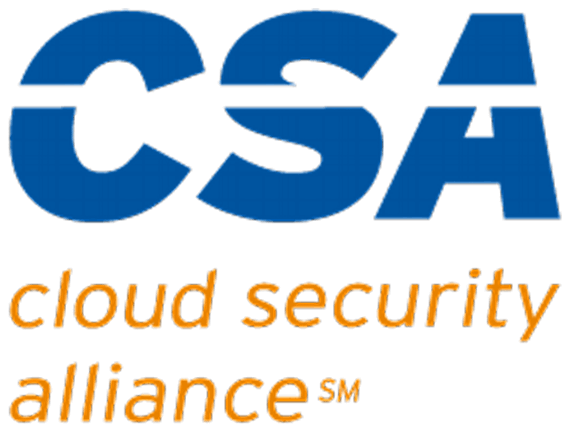Understanding Compliance in Cloud Infrastructure
When it comes to compliance in cloud infrastructure, it’s crucial to understand that different industries have specific regulations that need to be followed. Here are some key points to keep in mind:
- Various industries have specific regulations to follow regarding data security and privacy.
- Compliance requirements can vary based on where your data is stored.
- Regular audits are necessary to ensure compliance with industry standards.
- Providers often offer compliance certifications to demonstrate their adherence to regulations.
- Maintaining compliance is an ongoing process that requires attention to detail and vigilance.

Importance of Security in Cloud Environments
Security is crucial when it comes to cloud environments. Data breaches can lead to sensitive information being exposed, and unauthorized access can compromise the integrity of your systems. In a cloud infrastructure, security measures must be robust to protect against cyber threats. Encryption, access controls, and regular security audits are vital components in ensuring the safety of your data in the cloud.
Key Compliance Regulations for Cloud Infrastructure
Different industries have specific regulations that they must follow when using cloud infrastructure. Here are some key compliance regulations to consider:
- HIPAA (Health Insurance Portability and Accountability Act): This regulation is crucial for healthcare providers to ensure the security and privacy of patient data in cloud environments.
- GDPR (General Data Protection Regulation): GDPR applies to businesses handling personal data of individuals in the European Union, imposing strict requirements on data protection and privacy.
- PCI DSS (Payment Card Industry Data Security Standard): Companies that process, store, or transmit credit card data must comply with PCI DSS to prevent data breaches and protect customer information.
Best Practices for Ensuring Security in Cloud Deployments
To ensure security in cloud deployments, it is crucial to follow best practices. Here are the things you should consider:
- Regularly update your cloud infrastructure to patch any security vulnerabilities.
- Implement strong access controls to restrict unauthorized access to your cloud data.
- Encrypt your data both in transit and at rest to protect it from being intercepted.
- Conduct frequent security audits to identify and address any potential weaknesses in your cloud setup.
- Train your staff on security best practices to prevent human error from compromising your cloud security.
Implementing Encryption and Access Controls
Encrypting data ensures it is scrambled and unreadable to unauthorized access. Access controls determine who can view or manipulate data within the cloud. Secure your information by carefully setting up encryption and access controls.
Role of Monitoring and Auditing in Compliance Management
To ensure compliance with regulations and uphold security in cloud infrastructure, monitoring and auditing play crucial roles. Through continuous monitoring, organizations can track activities, identify potential breaches, and swiftly address any irregularities. Regular audits help in assessing compliance with industry standards and regulations, allowing for necessary improvements to be made. By integrating monitoring and auditing practices into compliance management, businesses can enhance their security posture and demonstrate adherence to necessary protocols.
Addressing Data Privacy Concerns in Cloud Environments
Data privacy is a top concern for many when it comes to using cloud services. You can enhance data security by encrypting your data while it’s in the cloud. You must be aware of the data protection laws and regulations in your country. By setting up strong access controls and regularly monitoring your cloud environment, you can better safeguard your data.
Cloud Service Providers’ Compliance Offerings
Cloud service providers offer various compliance offerings to help organizations meet regulations and enhance security. Some common compliance offerings provided by CSPs include:
- HIPAA compliance for healthcare data
- PCI DSS compliance for financial transactions
- ISO 27001 certification for information security management
- GDPR compliance for data protection in the European Union.
These compliance offerings are crucial for ensuring that organizations using cloud services are meeting regulatory requirements and protecting sensitive data.
Incident Response and Disaster Recovery Planning
In the world of cloud infrastructure, having a solid incident response and disaster recovery plan is crucial. Here are some key points to consider:
- Incident Response: It involves quickly identifying and addressing security incidents to minimize their impact. Response plans typically outline steps to take when a security breach occurs, such as isolating affected systems and notifying relevant parties.
- Disaster Recovery Planning: This focuses on how to resume operations after a major disruption. It involves creating backups, testing recovery procedures, and ensuring that systems can be restored to a functional state in case of a disaster.
Remember, having a well-thought-out incident response and disaster recovery plan can help your organization effectively handle security incidents and minimize downtime during emergencies.
Balancing Compliance and Security for Effective Cloud Infrastructure Management
To effectively manage cloud infrastructure, you need to strike a balance between compliance and security measures. Here are some key points to consider:
- Compliance Requirements: Ensure your cloud infrastructure meets all necessary regulatory standards and industry guidelines to avoid legal issues and data breaches.
- Security Protocols: Implement robust security measures to protect your data from cyber threats and unauthorized access.
- Regular Audits: Conduct regular audits to assess your cloud infrastructure’s compliance and security status, making necessary adjustments as needed.
- Employee Training: Educate your team on compliance and security best practices to minimize human errors and vulnerabilities.
- Continuous Monitoring: Keep a constant eye on your cloud infrastructure for any anomalies or potential security breaches.




